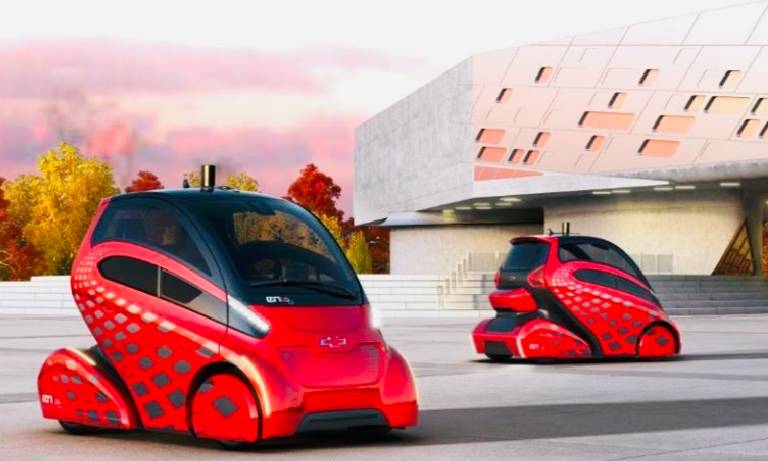It’s time to promote the use of shared bikes and cars
13 June 2019
Weibo Li suggests tactics for making shared transport more popular, as a way to reduce car dependence in daily trips.

In the last couple of years, an emerging transport concept has attracted massive attention, broadly referred to as shared mobility, which offers travellers greater flexibility, privacy and comfort than traditional public transport. There is an increasing interest in understanding the factors that could explain people’s mode choice preferences with the options of shared mobility involved, in order to find ways to encourage its uptake in our daily trips. The doctoral study completed by Weibo Li from MaaSlab responded to such a call, with a special focus being put on the fast-developing bike-sharing and car-sharing services in developing countries.
The research involves a case study in a Chinese city, Taiyuan, with over 9,000 people participating in a travel behaviour survey that gathered both revealed and stated preference mode choice data. For the analysis of bike-sharing choice, the results showed, in particular, the significant negative impact of air pollution on choosing bike-sharing as the travel mode. Nevertheless, via a policy impact study which looked at the extent to which people substitute one mode in preference to another, it was found improving air quality was actually less effective in promoting bike-sharing ridership than making some direct improvements to bike-sharing service (e.g. through access time saving, travel cost saving), though the measure was effective in helping reduce car dependence for short-distance travels.
When it came to choosing to car-sharing, travellers’ behaviour was found to differ by trip distance. Specifically, car-sharing users would care more about travel cost savings in shorter trips and travel time savings in longer trips, implying the need for designing differentiated policies to encourage the service’s uptake. It was also revealed that improvements to car-sharing services could more effectively bring down private car usage in longer rather than in shorter trips (both within the city boundary), where in the latter case the increasing demand for car-sharing was more from people switching from bus. Complementary measures – such as raising car travel and parking costs – were therefore needed to control private car usage when trip distance was relatively short.
The research further investigated attitudinal effects on the choices of using bike-sharing and car-sharing services. The preference towards bike-sharing was positively affected by the personal attitudes “Willingness to be a green traveller” and “Satisfaction with cycling environment”; while car-sharing preference was positively correlated with an attitude “Advocacy of car-sharing service”. The study also highlighted the importance to derive different values of travel time savings for travellers with differentiated attitudes, as the tastes towards travel time spent could vary substantially. In other words, there would be different trade-off preferences across attitudinal groups, according to which shared mobility providers could customize their strategies on prices and levels of service offered.
Finally, the work explored habitual changes of mode choice to search for wider inspirations for controlling private car usage. A variety of life course events, such as getting married, child birth, getting a job, household income increases and commute distance changes could all trigger switches between car and non-car alternatives as regular commute modes. To prevent commuters who frequently use bicycle, bus, electric bike and walking from switching to car, there was a need to have bespoke policies for each of these user groups as the results showed they could respond very differently to life course events.
Weibo Li is from MaasLab, a research team that focuses on new mobility service, including shared-mobility, on-demand services, automated vehicles, drones and flying cars, and new mobility concepts, such as Mobility as a Service (MaaS) in developed and developing countries. He completed his doctorate entitled ‘A Mode Choice Study on Shared Mobility Services: Policy Opportunities for a Developing Country’ in March 2019.
 Close
Close

